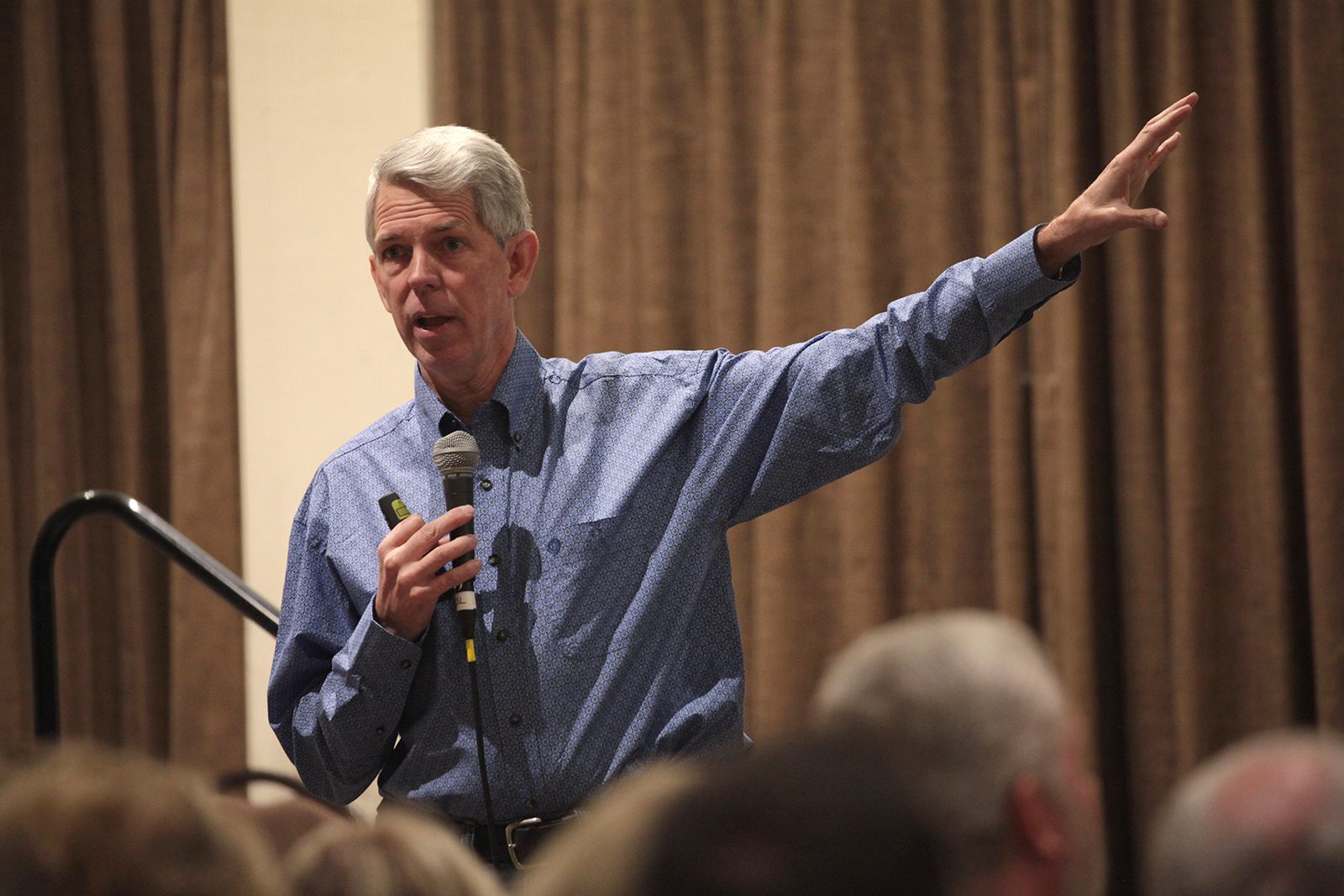The letter later appeared in the 1947 Supreme Court case Everson v. Board of Education, when justices held that the U.S. Constitution’s establishment clause applies to states.
“The First Amendment has erected a wall between church and state,” the court declared in its ruling. “That wall must be kept high and impregnable. We could not approve the slightest breach.”
The court’s interpretation has been the prevailing view among prominent legal scholars and the general public ever since. According to an October 2021 Pew Research survey, 55% of Americans are “church-state separationists,” with an additional 18% exhibiting “mixed” views on the subject.

David Barton addresses attendees at an event titled “An Evening Devotional on the U.S. Constitution” in Mesa, Arizona, on March 20, 2016. Photo by Gage Skidmore/Flickr/Creative Commons
But Barton and WallBuilders argue that Jefferson and the Founders, outside of some exceptions, meant for the “wall of protection” to operate in one direction. It also, the group and its founder suggested, applies mostly to the federal government, not the states.
“‘Separation of church and state’ currently means almost exactly the opposite of what it originally meant,” says the Wallbuilders website.
It’s a notion shared by many of Barton’s fellow conservative Christians. Among religious groups, white evangelical Protestants were the least likely to back church-state separation (26%) in Pew’s survey and the most likely to support integrating church and state (36%).
Even so, Barton’s critics are legion. The same year Falwell preached his anti-separationist sermon, Americans United for the Separation of Church and State penned their first rebuttal to Barton, refuting his arguments point for point.
“David Barton is the source of a lot of Christian nationalist disinformation,” said Andrew Seidel, a current vice president of Americans United.
Barton has also been derided as a “fake historian,” and one of his books, “The Jefferson Lies: Exposing the Myths You’ve Always Believed About Thomas Jefferson,” was so widely criticized by scholars that its Christian publisher halted its publication in 2012 because the “basic truths just were not there.”
Yet, Barton has remained a force in conservative thinking. George W. Bush’s campaign hired him to work on clergy outreach in 2004. After Barack Obama became president, Barton advised Republican power players such as Mike Huckabee, Newt Gingrich and former congresswoman Michele Bachmann. In 2016, Barton’s PAC backed Texas Sen. Ted Cruz’s presidential bid before eventually throwing his support behind Trump.
Barton, now in his late 60s, has cropped up in Christian nationalist contexts since Trump’s election. During Trump’s tenure, one of his most stalwart faith advisers, Texas pastor Robert Jeffress, delivered a sermon for his church’s July 4-themed “Freedom Sunday” titled “America is a Christian nation” that rejected the separation of church and state.
When the church celebrated Freedom Sunday again three years later, Jeffress didn’t even bother delivering a sermon: He let David Barton take the pulpit instead.











